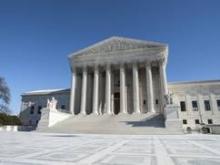Should a company be required to provide employees with health insurance coverage for contraception if the owner says it is a violation of his or her religious beliefs?
That’s one issue the Supreme Court will consider when it hears oral arguments March 25 in cases filed by Hobby Lobby Stores and Conestoga Wood Specialties Corp.
Each company objects to the Affordable Care Act’s requirement that insurance plans (with some exceptions) provide coverage of family planning counseling and any Food and Drug Administration–approved contraceptive method, as well as follow-up counseling and management, all at no cost to employees.
If the court rules in favor of the companies, millions of women potentially could lose their health care coverage for contraception.
More chillingly, such a ruling could lead to interference in the physician-patient relationship. Further, if for-profit employers are allowed to deny coverage of contraception based on religion, might they eventually seek to drop coverage for vaccination, psychiatric care, transfusions, and other medical procedures from their health plans?
"It would be a dangerous precedent," Dr. Hal C. Lawrence III, executive vice president and chief executive officer of the American Congress of Obstetricians and Gynecologists (ACOG), said in a briefing with reporters.
Tom Goldstein, a partner with law firm Goldstein & Russell and the publisher of SCOTUSblog, agreed.
"The legal principle invoked by the plaintiffs has some potentially startling implications for what one might claim as a religious liberty," he said at a briefing sponsored by the Kaiser Family Foundation. A ruling in their favor could result in "more expansive, more troubling claims," including denial of coverage for other medical procedures and, potentially, discrimination based on race, ethnicity, gender, or sexual orientation – all in the name of religious freedom.
Not all insurance plans must provide contraception coverage under the ACA. Health plans that existed before 2010 and have not substantially changed since are "grandfathered" and don’t have to provide coverage. Plans offered by nonprofit religious organizations are exempt. Nonprofit, religiously affiliated employers also are accommodated. If these employers object to providing coverage on religious grounds, they must notify their insurer. The employer can elect not to pay for that benefit, but the insurer has to reimburse the worker for contraception.
There are no exemptions for plans offered by secular employers, which face a $100 per day per enrollee penalty if they do not provide coverage. Hobby Lobby could face fines of up to $475 million a year, and Conestoga could be looking at $35 million a year in penalties, according to Laurie Sobel, a senior policy analyst with the Kaiser Family Foundation.
The contraception requirement has triggered at least 93 lawsuits. Some object to providing any contraception coverage, while others focus in on emergency contraception. The Hobby Lobby and Conestoga cases are the first to make it to the Supreme Court.
Religious objections
The family that owns Hobby Lobby, a chain with 500 stores and 13,000 employees, says it objects to covering Plan B, Ella, or IUDs because doing so violates its religious beliefs and First Amendment rights.
The Hahn family, which owns the 950-employee Conestoga Wood Specialties, says that it objects to covering Plan B or Ella for the same reasons.
Both object to covering family planning counseling as well.
The companies argue that the Religious Freedom Restoration Act of 1993 gives them the right to deny coverage. The task before their attorneys is to convince Supreme Court justices that a corporation can have religious beliefs and that expressing those beliefs is covered by the First Amendment.
Their arguments are supported by 59 amicus (friend of the court) briefs filed by religious groups and related parties.
The court has not upheld anything like that before, according to Marci A. Hamilton, the Paul R. Verkuil Chair in Public Law at the Benjamin N. Cardozo School of Law at Yeshiva University in New York. Religious beliefs are usually strictly protected, but religious conduct, which has the potential to harm people, can be governed, Ms. Hamilton said at the Kaiser briefing.
Contraception and public health
The government is arguing that it has a compelling interest to require contraception coverage and family planning because it helps prevent unintended pregnancy and thus improves the health of women and children.
This argument is supported in 23 amicus briefs filed by groups including physician organizations such as ACOG, the American Academy of Pediatrics, the Association of Reproductive Health Professionals, the California Medical Association, the Massachusetts Medical Society, and the Society for Maternal-Fetal Medicine, among others.


